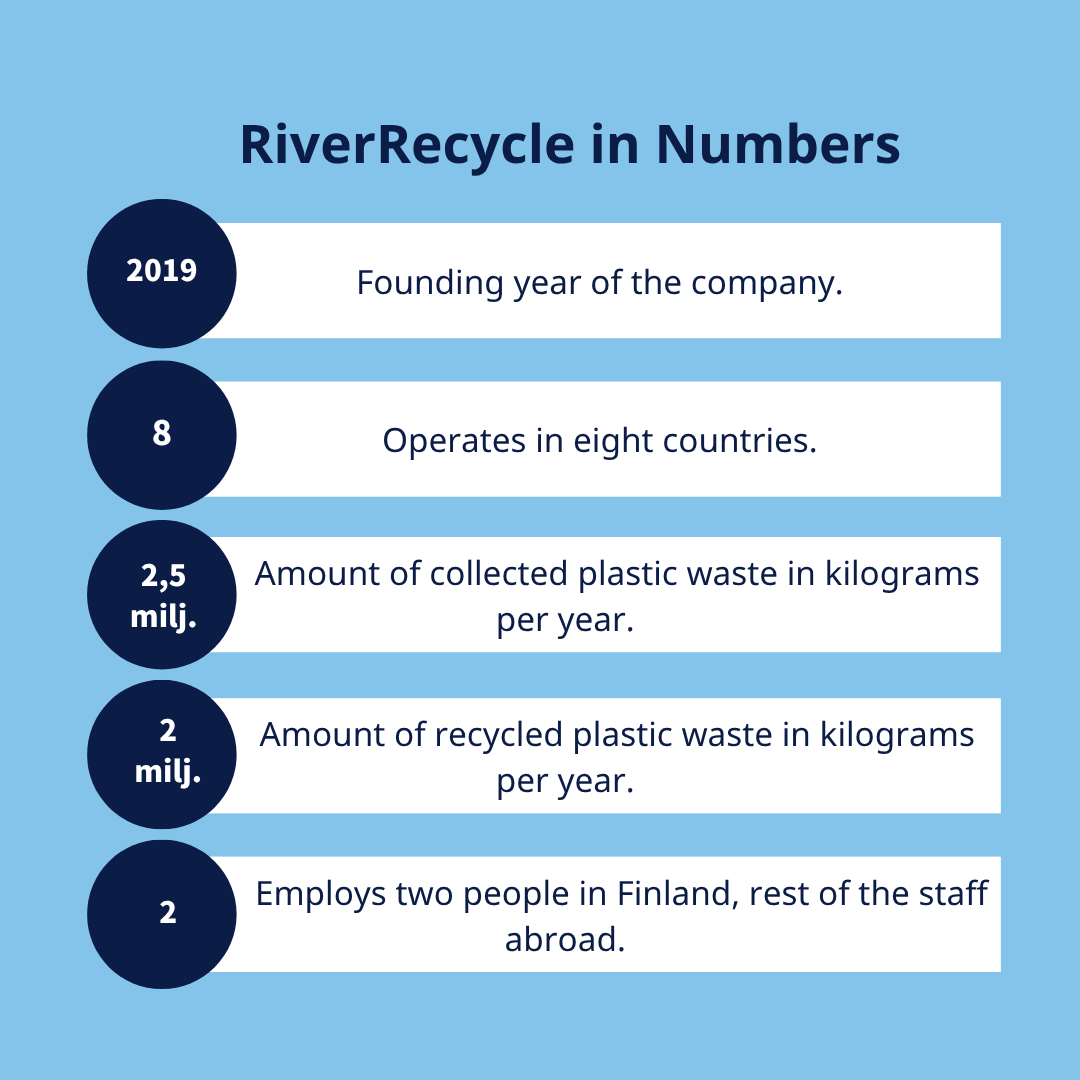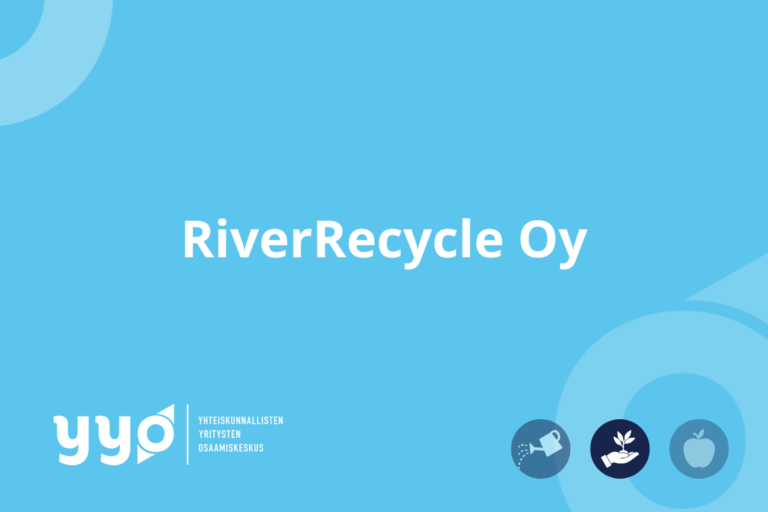Lue juttu suomeksi.
The mission of RiverRecycle is to reduce plastic from getting into the oceans. As the name of the company reveals, its goal is to collect plastic from rivers and recycle it to ensure that the plastic waste is repurposed and does not spill back into nature.

The company’s other intervention and impact goal shaped in the process of implementing its environmental mission. The waste collection projects are carried out in vulnerable communities like slums, which are the hotspots of plastic leakages all over the world. RiverRecycle creates jobs by employing local people and also engages so-called informal waste pickers from whom they buy collected plastic.
– Our main beneficiaries are the local communities. They are becoming more and more important, and our projects cannot really be implemented without the local community, explains Ho Chi Minh based project manager Vy Dihn the crucial role of collaboration with the local people.
Currently, RiverRecycle provides tailored waste management solutions for municipalities in e emerging economies such as India, Ghana and all-over South-East Asia. While working towards plastic free oceans it supports developing communities in improving their local environment and economies.
Impact Indicators as a Management System
The impact created is how the projects are evaluated and how the company monitors its operations. As the amount of collected plastic generates plastic credits and revenue, it also serves as an indicator of business success.
The company uses several indicators to measure its operations’ multiple impacts. Impact metrics set up the whole management system for the company, as described by Dihn:
– The metrics provide us with data to monitor our projects. If there is a sudden fall in the amount of plastic, we can see there is a problem, figure out what the issue is and solve it.
The first indicator is the amount of plastic collected in the river-based and land-based collection systems. After the mixed waste is sorted, the amount of recycled plastic fraction is monitored using accurate metrics. International plastic credit standards like Verra and Ocean Bioplastic are referenced for indicator details, such as the type of plastic, to ensure proper disposal.
– As we monetize from the plastic credit scheme and the extended producer responsibility scheme, the plastic fraction is important for us to know. RiverRecycle aspires to increase the recycling rate of collected plastic, Dihn highlights.
Jobs creation is an essential indicator of the impact on the community. The metric used is a payroll for full-time employment maintained by human resources. Regarding informal waste pickers, the number of engaged people, and the amount of plastic purchased from them are recorded.
Impact Measurement is a Daily Task
Collecting data is an administrative task, and the needed resources for that are mostly staff hours. It is important to collect data continuously.
– It takes you up to 10 to 15 minutes to send out the numbers. We try to get the staff to do it every day and create a habit for it, clarifies Dihn.
At the moment there are different data collection systems in use. In some countries data is input manually using Excel while in others new tracking platforms are being tested.
– Currently two different tracking platforms are in trial for Philippines and India to see which one is more efficient for us to launch in all our projects.
The platforms allow more detailed information and transparency in monitoring the whole value chain. Weight, type, location, and even pictures of the collected plastic waste can be recorded. The cost of the tracking system itself is reasonable.
Motivation to Carry On
Besides using the impact data for managing the projects and the company, it is an important tool to motivate the team to keep on going. All the employees want to make an impact, but in some roles the results are not as obvious as in others.
– I’m not directly involved in the collection and monitoring. It’s important for me to know that all things that I’m doing to support the company have tangible results, explains Alice Pittacolo, the communication manager of the company.
Investors are another relevant audience interested in the impact data. They invest in the company because they want to make a difference in the world, not only for financial profit.
RiverRecycle pursues engaging wider audiences too to support the company, spread the brand, and its important mission.
Writer Elina Pöllänen. The article is based on an interview with Vy Dihn and Alice Pittacolo from RiverRecycle.
